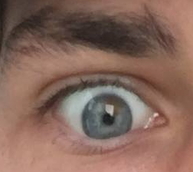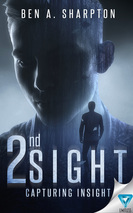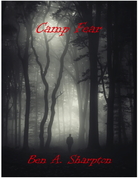|
If you’ve read my Rookie Movie Reviews, you may have noticed I enjoy sharing my thoughts about good, little-known or independent movies (see The Gift, Demolition, and, of course, Scouts Guide To The Zombie Apocalypse, below). The Fundamentals of Caring (now available on Netflix), starring Craig Roberts, Paul Rudd, and Selena Gomez, is one such movie.
Rudd plays Ben, a failed writer, failed father and failed husband, who takes a “six week course” on caregiving and then applies to take care of Trevor (Roberts), who is bound to a wheelchair because of Muscular Dystrophy. Trevor is a crass, insensitive, cynical asshole who delights in playing demeaning jokes on others. Ben catches on and dishes out as much as he receives and the two begin an odd, but satisfying, relationship. When Ben encourages Trevor to take a road trip with him to see nearby tourist attractions, especially the ‘World’s Deepest Pit,’ the flick turns into a real Buddy Film. This is where redemption begins. Ben and Trevor’s relationship grows, Trevor savors new experiences he never would have had back home, they pick up a couple of riders along the way and everyone learns and grows a bit. A good story should say something. Fundamentals says a lot.
1 Comment
 I love suspense stories (can you tell?). Eye in the Sky is an unusual suspense story. The movie follows a group of military drone personnel and their leaders (and their leaders, and their…) in an attempt to capture terrorists in Kenya. And, it’s suspenseful… but in a slow, meticulous way. Several things stood out for me in Eye in the Sky. Thing One; the technology: big drones with hell fire missiles, small disguised drones and even smaller drones. And all of these were controlled in one way or another, in tandem, by personnel from all over the world—Kenya, London, Hawaii, China, etc. Thing Two: the insanely unproductive levels of bureaucracy that must be scaled to run a single, but important, operation. Everyone has to ask everyone else for permission to do anything. C): Killing is tough, even from thousands of miles away. When someone dies in the film, or is pursued or threatened, members of the team from around the world are totally engrossed and emotionally torn apart as if they were personally at that location. Last, but not least: Eye in the Sky itches the brain; makes you think (which is critical for me). You struggle with the morality of technological war, the inefficiency of a military operation, the insanity of the situation, the painful stress encumbering so many, and much, much more. And you can dwell on that stuff for awhile. And talk about it with friends. Eye in the Sky is now available online and on DVD. Take a look! You've seen it before (Star Wars - Episode IV: A New Hope). Go see it again. REVIEW SEQUEL: You may have thought the above review was a little too trite or too short or too simplistic or too pompous, or, whatever. Then again, maybe not. Someone created a compilation video to demonstrate the similarities between Episode IV and Episode VII. It's pretty cool (and well done). Take a look (warning, Spoilers). Whenever I ask my daughter what she’d like to watch on TV or at the movies, her pat answer is, “Nothing Sad. Nothing Serious.”
She wouldn’t like Demolition. At least, that's what she thought. So we left her at home. That’s not to say Demolition is all sad and all serious. There’s humor, love friendship and all that other stuff, too. And all of it is done extremely well. Jake Gyllenhaal, one of the best actors today with a last name that is hard to spell, plays Davis, an upwardly-mobile investment counselor who suffers depression when his wife dies in an automobile accident. While at the hospital immediately after her death, he attempts to order a pack of Peanut M&Ms from a vending machine, but the candy gets stuck in the machine. He writes a letter of complaint to the service department, which eventually results in a personal relationship with the service agent and her son. What follows is Davis’ journey through the numbness of depression and how it impacts his relationships with those around him. His stepfather tells him, “Repairing the human heart is like repairing an automobile. You have to take everything apart to examine everything. Then you can put it all back together.” So Davis does. He disassembles his leaking refrigerator, a restroom stall and eventually his house. Demolition is a great movie. It deals with the way one man deals with severe depression, and yet, the flick is not depressing. Grief is a part of life. Everyone faces it. It is not something we should fear or dread or avoid. Davis’ father-in-law expresses our tendency to avoid the topic when he says (something like), “When a woman’s husband dies, she’s called a widow. When a parent dies, we call his child an orphan. But when a child dies, we don’t have a word to describe his parents.” There-in lies the strength of Demolition. It helps us accept and understand severe depression. As I’ve said before, good stories help us feel, empathize, understand the world around us. Demolition does that. It is a good story. Shameless plug: The depression Davis feels is, in a very small sense, similar to the way my main character manages the depression brought about when he loses his brother in my upcoming YA/NA book, Camp Fear (Solstice Press). I’m not in the movie creation business (but I did write training video scripts when I worked at Universal Studios Florida and Hughes Supply), However, I do respect people who write, direct and produce movies.
While watching the recently released CREED, I was impressed when the writer/director used a “long take” (or "oner") for the first big boxing scene. Basically, the entire two-round match (lasting about five minutes) appeared to be filmed with one camera, focusing on one character and then another, turning to view the crowd, zooming in on Rocky Balboa, etc.). It gives the viewer the feeling that he is right there in the movie. Other famous filmmakers, including Hitchcock, Kubrick and Spielberg, have used this technique. One such film was SNAKE EYES, staring Nicolas Cage and directed by Brian De Palma (who imitated Hitchcock a lot in his movies). Beginning with the first scene, the twelve-minute-long oner (actually three shots carefully edited together) follows sleazy Ricky Santora (Cage) through the back stage of an Atlantic City sporting arena where he beats up a drug seller, makes a bet, sees a boxer, and then goes to the arena where he talks to a friend and witnesses an assassination, all the while taking calls on his cellular flip phone (the movie’s that old). Pretty cool. Lots of fun. Tell me about the long takes you recall and look for them in current movies. By the way, see CREED. While not as inspiring as the original Rocky, it’s a good rental.  I wanted to see "10 Cloverfield Lane" since I first heard about the plot (which was only two months ago). A handful of people hiding (against their will?) from a terrible menace outside (a nuclear attack? chemical warfare? a terrorist attack, Martians? a zombie apocalypse?) in a homemade bunker. You see, I’ve seen this story before. Actually, I’ve been a part of it. Kinda. Back in the early ‘70s I worked as a youth director. At the time, curriculum was virtually nonexistent. Nothing. Nada. But this one guy — with long hair and a rough beard — named Dennis Benson was about the only guy publishing anything. In his book, “Gaming”, he provided a small, '45 record and instructions on how to conduct a unique survival simulation. So I did. I invited the kids to gather in a small room and listen as ‘Ralph’, a survival computer (on the '45), gave us instructions. Ralph told us to seal the door so we sealed it with duct tape. Ralph said we were the only surviving members of the human race and we had to decide what kind of society we were going to create to start over. We talked about it. Then Ralph said someone was outside the door and we had to decide if we would let that person (possibly contaminated) in. We decided. Our supply levels had depleted too rapidly, so we had to kick two people out and we had to decide which  I’m really not qualified to write this review. Not because I’m not a professional reviewer (which I am not), but because I fell asleep in the middle of the flick. The plot sounded good -- A cop who learns her daughter was murdered by a sadistic killer, sets about to seek revenge. Ah! Vengeance. Payback. Who wouldn't like that? Pretty Woman (I mean Julia Roberts) does a marvelous job as the vengeful mother playing her role perfectly. The other cast members are okay. But Erin Brockovich (I mean Julia Roberts) seems incredibly believable. The problem, to me, is “Secret” is sooo slooooowww. It went on forever, which is the death knell for a thriller. But worse, everybody in the movie whispers. Chiwetel Ejiofor whispers. Nicole Kidman whispers (with American and Australian accents). Larry Crowne (I mean Julia Roberts) whispers. It’s as if either the director thought whispering would make the movie more suspenseful or the movie was filmed in a library. To its credit, the film does have a twist or two... Somewhere. So, if you’re inclined, check it out. But be sure to bring coffee.  NOTE: While “Our Brand Is Crisis” is a politically-based movie, it does not side with one U.S. party or another. In fact, I couldn't tell if a candidate was conservative or progressive throughout the movie. Okay, the critics don’t agree with me on this one. Rotten Tomatoes gave it a 33%. Amazon rated it 5.9 out of 10 and IMDb gave it a Metascore of 53. But that just goes to show you, the critics are sometimes wrong. (At least when they disagree with me). “Our Brand Is Crisis” is based loosely on the documentary, “Our Brand Is Crisis” (catchy name, right?) which is about the 2002 Bolivian presidential election. Sandra Bullock plays “Calamity Jane”, a burned-out political consultant who is brought in to help the Castillo campaign. Jane struggles against being truly involved until her rival, Pat Candy (played by a bald Billy Bob Thornton) taunts her mercilessly. Then she unleashes the big, dirty bag o’ campaign tricks to fight back. More than just a story about a presidential election, this movie tells the story of a competition between two campaign consultants. Bullock is about as convincing as possible. She struggles with deep depression in the beginning, becomes ruthless throughout the movie (with great comedic scenes interspersed here and there) and ends the movie portraying the slightest bit of hope in the future. Some won’t like “Crisis” because it reveals the nasty side of politics. But in our own election year, when politicians are calling each other names, shouting down opposing comments, stretching the truth, making promises they know they can’t keep and basically being sons-of-a-bitches, it’s okay to wade into the mud-slinging for one hour and forty-seven minutes to get a good look behind the scenes. The campaign antics may be disappointing and frustrating, but, to paraphrase Frederich Nietzsche, “What does not kill me makes me stronger.” So, go ahead. Get your cynicism on during this election season. Watch, “Our Brand Is Crisis.” It won’t kill you. Quotable Quote: “You like to pretend you’re not one of us. But if you fight with monsters, you become a monster.” There is a new (kinda) genre in writing called, “Boomer Lit”. Now it’s not really an official genre, and it hasn’t caught on yet, but some writers have begun writing stories about and with us old fogies.
The Intern is a movie that fits well within that category. It’s not the first. For example(s), Darling Companion, Ricki and the Flash, Last Vegas (starring 4 old geezers) were all Boomer Movies and all were boomer movies starring Kevin Kline. The Intern is a Boomer Movie — about a baby boomer for baby boomers. Robert De Niro plays Ben (great name) Whittaker, a retired executive who finds himself alone with lots of free time after his wife passes away. So, he applies for and gets a job as a Senior Intern - an intern job for old farts. Unfortunately, the movie is about as unrealistic as an Oscar-winning Sylvester Stallone and Arnold Schwarzenegger film. The idea that Ben, a former vice president of a corporation, would become a lowly intern is difficult to grasp. His boss, Jules (Anne Hathaway), is the president and founder of the company that hires him and is so sweet, gentle, kind and compassionate (I know - those words are semi-synonyms - but they all apply) it’s hard to imagine she is driven enough to be in the position she is. I’ve worked with six or seven company presidents and none of them were as sweet (read that as ‘empathetic’) as she. She answers phones for customer service reps, comes to work at about 9:00 and goes home at around 5:00 (it’s always light outside) every day, except for one night when she has to work late and eats pizza for dinner. She carries cups of coffee to employees. She shows manufacturing people how to package their products correctly. Oh, were it so. Three twenty-something front-line employees are so enamored with the old man intern that they follow him around all over the office, asking for advice and trying out every one of his suggestions. (Really?) And they’re stereotyped buffoons, only knowing how to talk to girls through social media, stumbling over themselves constantly, wearing nerdy clothes, etc. He speaks to a woman who is married to a philandering man and in no time at all, he changes his wicked ways and their marriage is saved! No marital counseling needed. But what frustrates me the most is there is no antagonist and no character arc. De Niro has no nemesis and never has to overcome anything (except going to work, which ain’t no thang). He doesn’t grow or change throughout the movie. In fact, De Niro seems out of place throughout the film. Action is limited to driving Hathaway around the city, babysitting her young child (a real red flag in the corporate world - trust me, I’m an ex-HR guy) and basically observing those around him like a weird stalker. Most of the time he simply stands around and makes funny faces as if trying to appear engaged, compassionate, knowledgeable, etc. All of this leads me to believe The Intern is a Boomer Movie, written specifically for Woman Boomers. I imagine the writer/director created this piece for the little old blue-haired ladies who would see it, smile, say to each other, “Ben’s such a nice man… Just look at how he helps those poor young boys… And he never does anything wrong… And he’s sooooo wise… What the hell is a USB cable?” And, if that’s the goal, the movie accomplishes it easily. Women Boomers will love it. They’ll swoon over it. They’ll wish their sons and daughters all had a senior intern like Ben. I really wanted to like The Intern. I love the cast. I liked the predictable premise. I imagined all of the great things this story could tell. And I did enjoy it, on a sweet, simplistic, unrealistic, almost fairy tale level. But life’s not sweet, simplistic, unrealistic or fairy tale-ist. It’s full of tension and frustration and failure followed by regret and hopefully redeemed in one way or another. While tailored for A-list actors, The Intern seems to have been written and directed by (wait for it…) an intern.  Who could resist a name like “Scout’s Guide To The Apocalypse”? (Apparently a lot of people, considering it’s grossed — no pun intended - less than $4 mil against a $15 mil budget). But’ it’s on Pay Per View now and it might be worth another visit... if nothing else is on... you’ve already popped the corn... you’re bored out of your (zombie) skull. Three scouts (there are only three in this troop and two-thirds of them are planning to quit) must band together to save a love interest from hundreds of zombies created by something (a lab experiment gone wrong, I think — I don’t really care — after all, it’s about zombies). The scouts arm themselves with makeshift weapons from the local hardware store, like The Caulk N’ Nail (a combination caulk gun/crossbow that shoots nails), The Bleed Whacker (weed whacker with butcher knives) and The Knob Lob (PVC pipe that somehow shoots doorknobs) to fight many marauding dismembered monsters (not really an alliteration, but it sounds fun). It’s got everything every other zombie movies has — gore, blood, guts, mayhem, zombie violence, sexual material, graphic, gratuitous nudity and crude language. So, it’s typically stereotypical. To add to the stereotype hype, it includes a zombie stripper, a badass high school dropout/cocktail waitress, a Dolly Parton worshiping scout leader, zombie breasts, a zombie deer and a houseful of zombie cats. Scouts Guide exploits the talents of Tye Sheridan (Mud, Tree of Life), Chloris Leachman (a bunch of stuff, Young Frankenstein) David Kouchner (Hot Tub Time Machine) and some other people. Of course, the quotes are some of the best parts of the show:
If you do watch Scouts Guide, be sure to stick around for the closing credits, containing tons of zombie selfies. I would like to say Scouts Guide is the Porky’s of another generation, but that claim is due to Zombeiland. |
Send Me Updates!Sharpton's BooksRookie Movie ReviewsStories are stories, whether they are recited around a roaring campfire, printed on paper or projected on a screen. And, stories should say something. Archives
July 2016
|






 RSS Feed
RSS Feed
